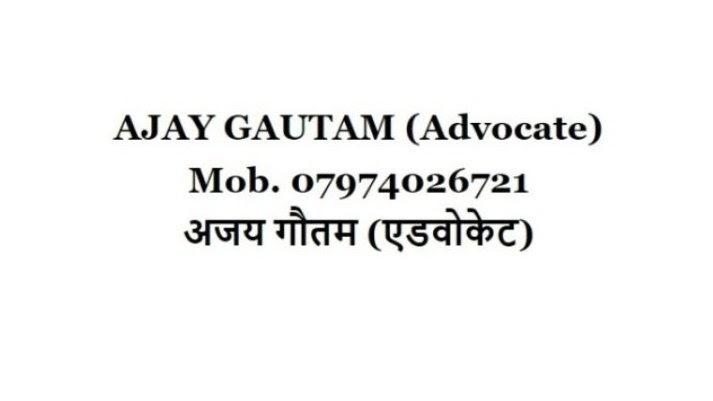How to become an Arbitrator in India, How to Become International Arbitrator?
Becoming an arbitrator in India or an international arbitrator involves acquiring relevant qualifications, experience, and recognition. Here are the general steps to become an arbitrator in India and an international arbitrator:
Becoming an Arbitrator in India:
- Legal Qualification: Start by obtaining a legal qualification, such as a bachelor's degree in law (LL.B), and enroll as an advocate with the Bar Council of India or the relevant State Bar Council.
- Specialization in Arbitration: Gain knowledge and expertise in arbitration law by attending seminars, workshops, and courses focused on alternative dispute resolution. Pursuing a Master's degree in law (LL.M) with a specialization in arbitration can also enhance your credentials.
- Practical Experience: Acquire practical experience in the legal field, preferably by working with experienced lawyers or law firms that handle arbitration cases. Practical exposure is crucial for understanding the arbitration process and gaining insight into the complexities of dispute resolution.
- Accreditation: Seek accreditation as an arbitrator from reputable arbitration institutions in India. These institutions may have their own criteria and procedures for accrediting arbitrators.
- Networking: Build a professional network within the legal and arbitration community. Participate in arbitration-related events and seminars organized by institutions like the Indian Council of Arbitration (ICA) or the International Centre for Alternative Dispute Resolution (ICADR).
- Continuing Professional Development: Stay updated with the latest developments in arbitration law through continuous learning, attending workshops, conferences, and keeping track of changes in relevant legislation.
Becoming an International Arbitrator:
- Legal Qualification and Experience: Start by obtaining a legal qualification and gaining significant experience as a lawyer or arbitrator in domestic arbitration cases.
- Language Proficiency: Being fluent in multiple languages, particularly English, is essential for international arbitrators since many international arbitrations are conducted in English.
- Specialization and Expertise: Develop expertise in specific areas of law that are frequently involved in international disputes, such as international trade, investment, construction, or commercial law.
- International Exposure: Gain international exposure by attending seminars, conferences, and events related to international arbitration. Networking with professionals from different countries can open up opportunities.
- Arbitral Institutions: Get involved with reputable international arbitration institutions like the International Chamber of Commerce (ICC), the International Centre for Dispute Resolution (ICDR), or the London Court of International Arbitration (LCIA).
- Appointment and Recognition: Seek appointment as an arbitrator in international cases through referrals, nominations by arbitration institutions, or being listed in arbitrator databases.
- Continuing Education: Stay up-to-date with international arbitration laws and practices through continuous learning and participation in international arbitration conferences and training programs.
It's essential to note that becoming an international arbitrator often requires a combination of legal expertise, experience, and reputation within the legal community. Building a successful career as an arbitrator, whether in India or internationally, involves a commitment to continuous learning, networking, and professional development.
How to become an Arbitrator in India, How to Become International Arbitrator?
Here are the steps on how to become an Arbitrator in India:
- Complete an LLB degree. This is the minimum educational requirement for becoming an arbitrator in India. You can pursue an LLB degree from a recognized law school in India.
- Gain experience working in an arbitration law firm. This is a great way to learn about the arbitration process and to gain practical experience. You can also gain experience by working as a research assistant or intern at a law firm that specializes in arbitration.
- Pursue a postgraduate course in arbitration law. This is not a mandatory requirement, but it can help you gain a deeper understanding of arbitration law. There are several postgraduate courses in arbitration law offered by law schools in India.
- Gain experience in arbitration proceedings. This is essential for becoming a successful arbitrator. You can gain experience by representing clients in arbitration proceedings or by working as a consultant to arbitration institutions.
- Build your reputation. As an arbitrator, you need to build a reputation for being fair, impartial, and knowledgeable. You can do this by participating in arbitrations, publishing articles on arbitration law, and speaking at conferences.
- Get accredited. There are several organizations that offer accreditation for arbitrators. Getting accredited can help you get more appointments as an arbitrator.
Here are some additional tips for becoming an Arbitrator in India:
- Network with other arbitrators. This is a great way to learn about opportunities and to get your foot in the door. You can network with other arbitrators through professional organizations, conferences, and social media.
- Stay up-to-date on the law. Arbitration law is constantly evolving, so it is important to stay up-to-date on the latest developments. You can do this by reading legal journals, attending conferences, and taking continuing education courses.
- Develop your skills. In addition to your legal skills, you should also develop your communication, negotiation, and problem-solving skills. These skills are essential for success in arbitration.
Here are the steps on how to become an International Arbitrator:
- Complete an LLB degree from a recognized law school.
- Gain experience working in an arbitration law firm or organization.
- Pursue a postgraduate course in arbitration law.
- Get accredited by an international arbitration organization.
- Build your reputation as an arbitrator.
- Network with other international arbitrators.
- Stay up-to-date on the law.
- Develop your skills.
The specific requirements for becoming an international arbitrator vary depending on the organization that you wish to be accredited by. However, the general requirements are the same as those for becoming an arbitrator in India. Advocate in Jabalpur – Lawyer in Jabalpur – Ajay Gautam Advocate Jabalpur

